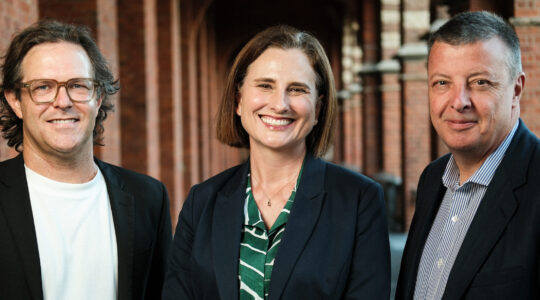A Brisbane neurosurgeon has used Australian-first robotic-guided laser technology to save the life of a woman with multiple brain tumours.
Dr Sarah Olson, from Mater Private Hospital Brisbane, used a new advanced minimally-invasive surgical system on 61-year-old Evangeline Lim, who has a rare type of lung cancer, which had spread to her brain and began to affect her mobility.
Dr Olson said conventional brain surgery would likely have left Mrs Lim in a wheelchair for the rest of her life, but the new system gave her hope of a making a full recovery.
She said the Visualase system used live MRI tracking and robotic alignment technology to guide a fibre-optic laser probe to the site of a tumour.
“The laser then kills the tumour by heating the tissue to around 60C, in a procedure known as laser interstitial thermal therapy (LiTT).”
Mrs Lim said she was amazed to be able to return to her Hope Island home just days after LiTT surgery destroyed her two brain tumours.
“Almost straight away I could feel the changes in the left side of my body – it was like magic,” Mrs Lim said.
“Before having the surgery, my foot would drop when I walked. I had reduced my hours of work because using the computer was slow and difficult.
“Even walking up the stairs was so hard, and also everyday tasks such as cooking and cleaning. But now I am back to normal. The operation was life-changing.”
Dr Olson said Mater Private Hospital Brisbane was the first hospital in the southern hemisphere to adopt the US-developed Visualase LiTT system, which was also used to treat epilepsy patients as well as those with brain cancers.
She said the technology allowed surgical teams to insert a laser probe through a small skin incision in the skull, without the need for highly invasive brain surgery.
“Patient recovery times are faster and neurological complications are less common,” she said.
Dr Olson said the LiTT procedure also stopped the need for Ms Lim to require steroid treatment, which would have affected her ongoing treatment for lung cancer.








